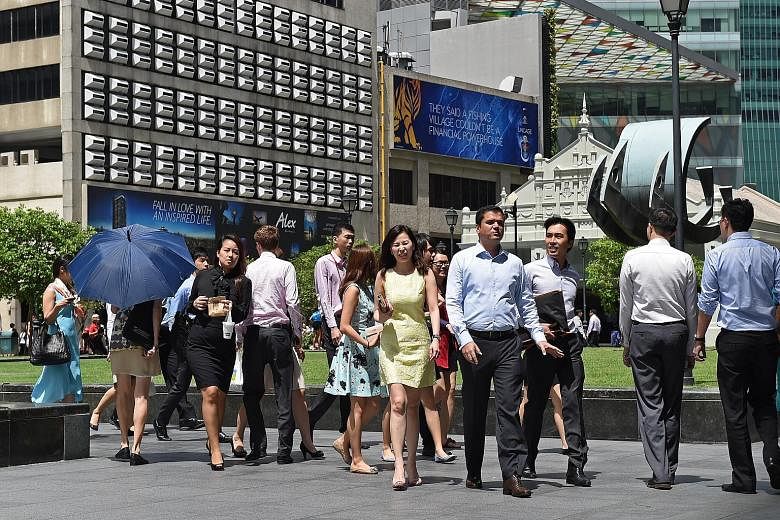The rise of Asia, the impact of disruptive technology and the need for workers with deeper and more adaptable skills are among the key challenges facing Singapore in the coming decades.
Second Minister for Trade and Industry S. Iswaran yesterday said at a dinner to cap the first day of the Singapore Economic Review Conference that the resurgence of Asia is not a new phenomenon but has intensified in recent years.
The Chinese economy remains formidable, despite concerns about its slowing growth. China is ascending the value chain, and will increasingly compete with Singapore in high-tech manufacturing sectors such as the semiconductor industry, he noted.
India, too, has announced "Make in India" and "Smart Cities" as two of its priorities, potentially creating a new manufacturing base in Asia.
And Singapore is surrounded by regional emerging economies with untapped potential, said Mr Iswaran. This means it must continue to build on its strength as "the bridge between Asia and the rest of the world".
Mr Iswaran said: "We can anticipate intensifying competition for investments, markets, resources and talent in the region.
"On the brighter side, the rising affluence of Asia's growing middle class and the increasing sophistication of Asian consumers also hold tremendous opportunities for us."
Singapore will also need to manage new technologies which are reshaping all aspects of industry.
"Our challenge is not only whether we can adopt new technologies more quickly than others, but also if we create value by pushing the frontier in new ways," he said.
The minister emphasised that strengthening the Singaporean core of the workforce will be a key tenet of sustainable long-term growth. Even as it grapples with the challenges associated with an ageing population, policymakers are working to enhance labour force participation rates and skills.
Mr Iswaran was not the only government official who sought to paint a picture of Singapore's future during yesterday's conference, which attracted 330 economists, business people and past and current policymakers from nearly 40 countries.
It is the flagship event of the quarterly Singapore Economic Review, the journal of the Economic Society of Singapore. It is edited by Nanyang Technological University economist Euston Quah.
Monetary Authority of Singapore managing director Ravi Menon told the gathering at the Mandarin Orchard Hotel how he envisages Singapore in 2065 and what the major growth drivers in the coming five decades could be.
In 50 years, the global centre of economic gravity will have shifted decisively to Asia and Singapore will benefit from its trade and investment links with Asian giants such as China, India and Indonesia, Mr Menon said.
Also, a thriving "ideas economy" will have taken root in Singapore by 2065, with the creation of economic value associated increasingly with "dematerialised products" such as telecommunications, algorithms, software, design, testing and research, he added.

